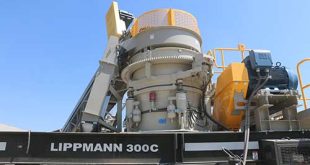Long-term performance in the construction industry and large-scale infrastructure projects is influenced by two key factors: profitability and efficiency. Heavy equipment plays a critical role in shaping these outcomes. Whether it’s excavators, loaders, bulldozers, or cranes, the right equipment ensures that projects move forward smoothly and on schedule. However, purchasing this machinery outright is not always practical. This is where heavy equipment rental comes in as a cost-effective, flexible, and strategic solution that helps contractors and businesses stay competitive while maximizing operational performance.
Cost Savings That Drive Profitability
Owning heavy machinery involves a huge initial investment that can strain the budget of even established companies. In contrast, renting eliminates the need for large upfront costs. Businesses can allocate their resources to other priorities like hiring more employees, marketing, or securing new contracts rather than investing in depreciating assets. Rental companies typically handle maintenance, servicing, and insurance, which further reduces the financial burden.
The pay-as-you-go structure of rental agreements ensures companies pay only for the equipment they need and for the duration of use. This flexibility helps maintain cash flow, allowing businesses to operate more profitably without unnecessary financial risks. Over time, these savings add up, contributing significantly to the bottom line.
Improved Project Efficiency Through Access To Modern Equipment
One of the biggest advantages of heavy equipment rental is access to the latest technology. Rental providers constantly update their fleets with new models that come equipped with advanced features, smart controls, and improved fuel efficiency. This means companies can benefit from cutting-edge performance without the long-term commitment of ownership.
Modern equipment minimizes downtime and enhances precision, leading to faster project completion. When machines perform at their best, productivity naturally increases. Contractors can also rent specialized machinery suited for particular project phases, ensuring the right tools are always available. This adaptability improves project timelines and reduces the risk of delays caused by mechanical limitations or outdated equipment.
Reduced Maintenance And Operational Responsibilities
Maintenance is a major factor that influences equipment performance and profitability. Regular maintenance, unforeseen repairs, and part replacement are all part of owning heavy machinery. These costs can quickly escalate and disrupt project schedules. With heavy equipment rental, however, maintenance is typically managed by the rental company.
This means contractors don’t have to worry about breakdowns or the availability of spare parts. In case of any malfunction, the rental provider usually offers quick replacements or on-site support. This not only reduces downtime but also allows project teams to stay focused on core operations instead of diverting attention to equipment issues. The result is better time management and greater consistency in project execution.
Flexibility To Scale Operations
Project demands can change unexpectedly. Some projects may require additional equipment due to increased workload, while others may slow down because of external factors like weather or material delays. Heavy equipment rental provides the flexibility to adjust to these fluctuations easily. Companies can scale up their fleet during busy periods and return equipment when demand decreases, preventing unnecessary expenses.
This scalability ensures that resources are always aligned with project needs. It eliminates the problem of owning idle machinery that sits unused for months, costing money in maintenance and storage. By aligning rental periods with active project phases, businesses can optimize utilization and achieve maximum value from every dollar spent.
Enhanced Safety And Compliance
Safety is non-negotiable in construction and industrial operations. Rental companies take safety seriously by ensuring their machines meet regulatory standards and are regularly inspected. By renting from certified providers, contractors can rely on equipment that is well-maintained and compliant with safety regulations.
In addition, many modern rental machines include safety-enhancing technologies such as load monitoring systems, backup cameras, and GPS tracking. These characteristics enhance site management generally and lower the chance of accidents at work. Fewer accidents mean fewer delays and lower costs associated with downtime or insurance claims, directly improving profitability.
Streamlined Logistics And Expert Support
Another often-overlooked advantage of heavy equipment rental is the logistical support offered by rental providers. Many companies provide delivery, setup, and operator training as part of their service. This removes the inconvenience of setup delays and transportation, which might cause operations to lag.
Rental companies also have expert staff who can recommend the right equipment for specific tasks. Their guidance ensures optimal machine selection, improving efficiency on-site. When projects benefit from professional advice and dependable logistics, the overall workflow becomes smoother and more organized.
Environmental And Sustainability Benefits
In the building sector, sustainability is becoming more and more significant. Renting equipment aligns with eco-friendly practices by reducing the need to manufacture new machines and lowering the total carbon footprint. A circular economy model is promoted by sharing and reusing equipment across projects, which is advantageous for the industry and the environment.
Additionally, newer rental machines are designed with better fuel efficiency and lower emissions. By using such equipment, companies not only save on fuel costs but also meet environmental compliance standards, which can be a requirement in government or corporate projects.
Final Thoughts
Heavy equipment rental is more than a financial alternative to ownership. It is a strategic business decision that supports growth, productivity, and sustainability. By reducing capital expenses, improving access to modern technology, and minimizing maintenance responsibilities, companies can focus on what truly matters: delivering successful projects on time and within budget. In an industry where efficiency determines profitability, heavy equipment rental stands out as a practical solution that empowers contractors to operate smarter, faster, and more profitably.
 Pagal World
Pagal World




